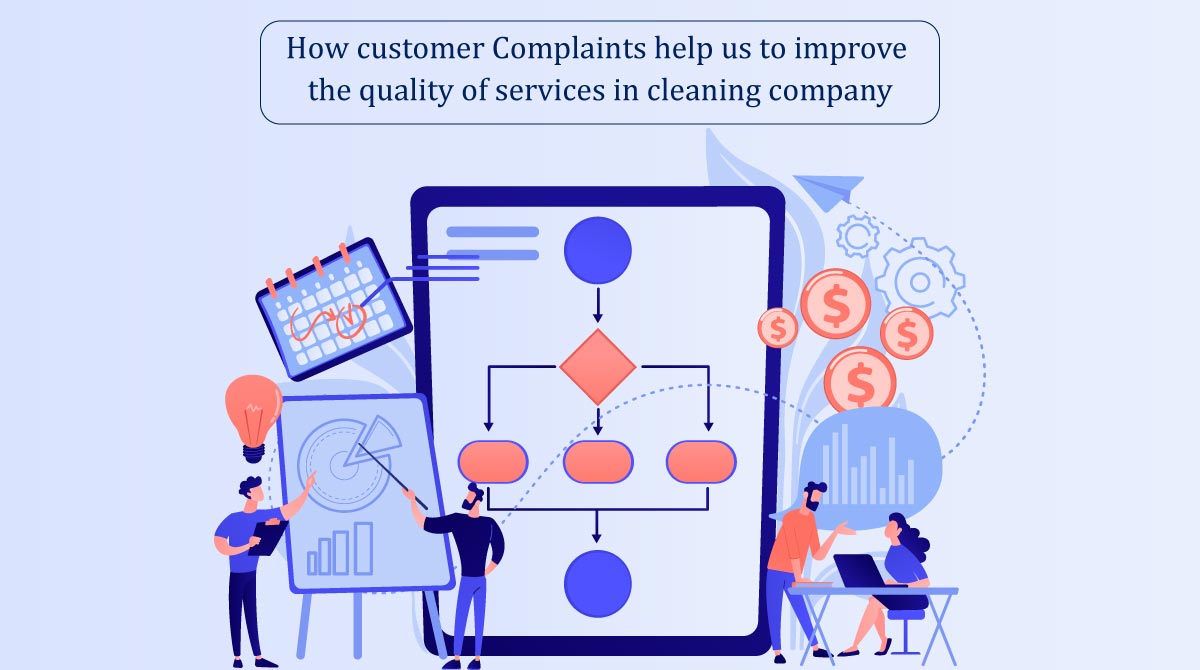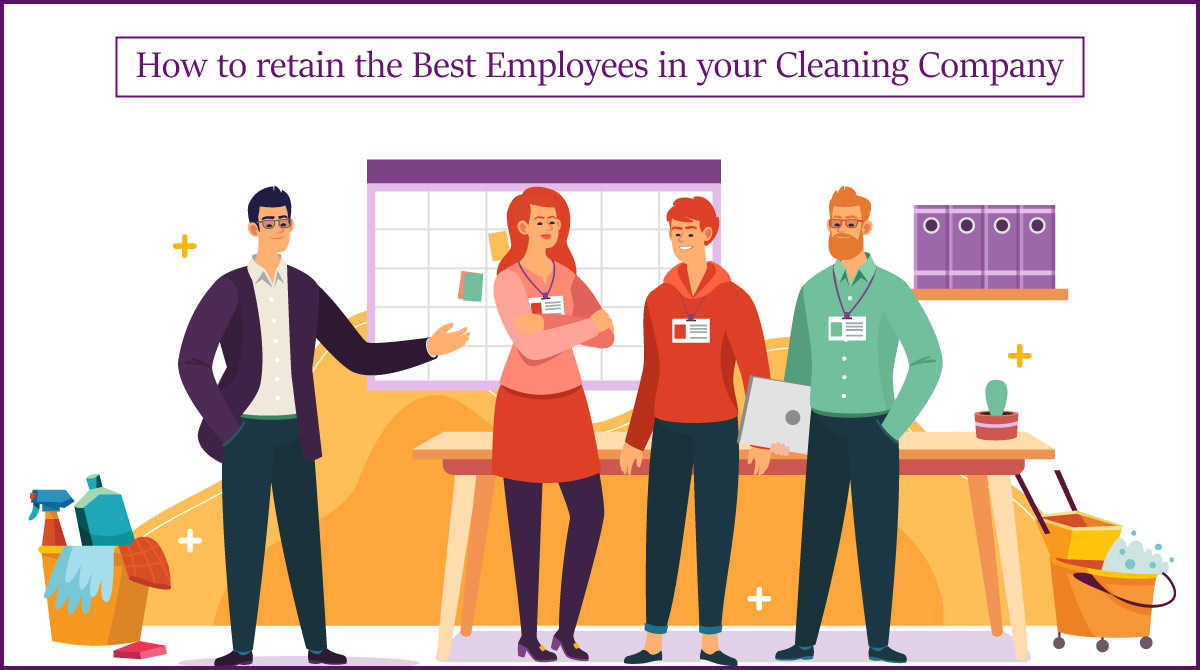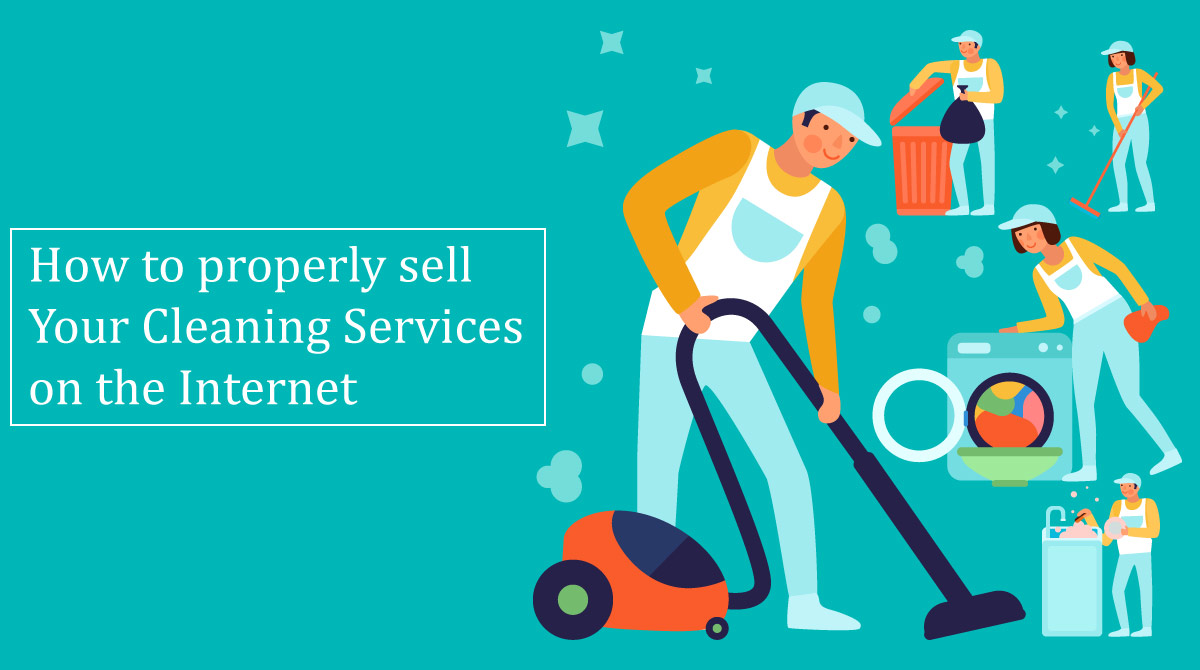
Customer complaints are inevitable for every cleaning company. Customers will find weaknesses and shortcomings in your work, even if you think that your cleaning service is impeccable.
But your customer complaints about service, you have a chance to convert the feedback to feedforward. It’s the best way to improve your quality of work. In this article, we will learn How customer Complaints help us improve the quality of services in the cleaning company.
What are the Complaints
Customer complaints are a way of life, and it’s just something that you have to accept as part of being in the business world. If a customer is happy with what you do, they won’t complain about anything too much – but if they’re unhappy about something (or if something goes wrong), they’ll let you know about it.
Just remember: it doesn’t matter how good your work is – there’s always going to be someone who isn’t happy with what they get from you. But don’t let this put off any ambition or enthusiasm; instead, use these customer complaints as feedback on how well or poorly things went.
Your customer can help you understand your business better.
The best way to handle customer complaints is to be clear, calm and patient. You need to make sure that you understand their perspective and use the opportunity to learn about your business so you can use what you’ve learned to improve it.
First of all, be transparent with your customers and don’t hide anything from them. If there is an issue with their booking or cleaning services, let them know the situation before it gets worse or too late for a fix. They may not always agree with your decision, but at least they will understand where you stand in this matter before moving on with another provider who might not have such high standards as yours.
When listening attentively without interrupting the customer while he/she describes his/her problem, listen carefully because sometimes we miss vital words which would help us solve these issues quickly – especially when talking face-to-face rather than over email, where we tend not to pay attention as much due to our natural tendency towards multitasking.
Finally: Use what knowledge gained here today wisely! Focus on improving one small step at once instead of trying everything at once because someone else did this already (they probably didn’t, though). After all, those suggestions go through some sort.
Most customers do not like to complain.
Most customers do not like to complain. It is most likely the case that a customer has complained because they want you to know about it. Although they may have tried to solve the problem before complaining, they still feel that your company should be aware of it. Customers are less likely to complain in person (especially if they’re trying to be polite), so most complaints come via email or online reviews. Keep this in mind as you read through your complaints and figure out why customers are complaining
Your customers feel better when they complain and get a response from you.
Your customers feel better when they complain and get a response from you. This can turn into a positive experience for both of you.
- They feel that their problem is acknowledged
- They feel that their problem is taken seriously
- They feel that they are heard
- They feel that their problem is being solved
The cleaning industry is highly competitive.
The cleaning industry is highly competitive. You may not be seen as the worst cleaner, but a cleaner who responds appropriately to complaints will be seen as better than one who doesn’t respond to complaints.
Cleaners who do not respond to complaints will be seen as worse than cleaners.
Responding to complaints helps bring in new customers.
The most crucial benefit of responding to customer complaints is that it helps bring in new customers through word-of-mouth advertising.
Customer loyalty can be a hard thing to achieve. Still, if your company has had some positive experiences with customers, you will probably find it easier to retain their loyalty. This means you’re more likely to have repeat business than if they’d never used your service before.
Customers are also more likely to refer people who have had good experiences with the service or service provider than those who haven’t. They will often take the time out of their day and talk about how great their experience was when recommending something or someone else because they feel like they owe it to them after having such a positive experience themselves!
Responding to complaints is essential.
Responding to complaints is essential because most customers never bother complaining at all. They decide not to buy from you again or choose another company next time. This can have a significant impact on your business.
A survey conducted by Sage in 2016 showed that:
Just 46% of consumers who experienced poor service contacted their supplier about it (this is down from 50% in 2015)
Only 15% followed through with a complaint – despite nearly three quarters saying they wouldn’t use that supplier again.
Complaints are great learning opportunities.
Complaints are great learning opportunities – they help you improve your products and services and identify potential problems with your business processes before they result in significant financial losses.
Here are some key ways that complaints can be helpful:
They help you learn what customers want. Customers don’t complain because they want to annoy you or play games; they complain because they want something to change. If a customer complains about something, it is because they have a problem that needs solving – an opportunity for improvement! So remember: complaining customers can give us crucial feedback on how to improve our service quality. Ask them questions like “What would make this situation better for you?” or “What else could we do so that this encounter is more successful?”
Negative Feedback to Feedforward
Customer complaints are not only inevitable but also necessary for improving the quality of service in your cleaning company. The key is to use the customer’s feedback to improve your overall service and create a positive experience for them and future customers.
There are several ways you can turn a negative experience into something very positive through careful handling of customer complaints:
Ask open-ended questions that allow you to understand what they’re saying
Listen attentively and show empathy
Apologize if you made a mistake, even if it’s not your fault (this shows that you care about their happiness)
Conclusion
Great businesses know that it’s essential to listen to customers’ complaints and learn from them. As a cleaning service, you should be asking for feedback from your clients, whether they’re calling or texting you. If they have a problem with one of your employees or how they were treated when they called, listen carefully and make sure you take action based on their feedback.
Great businesses also make it a habit to do this by setting up systems that make listening easier—for example, having clear written guidelines about how customers should be treated during calls so everyone knows what is expected of them.
COMMENTS
LET US KNOW YOUR REQUIREMENTS
You must be logged in to post a comment.


